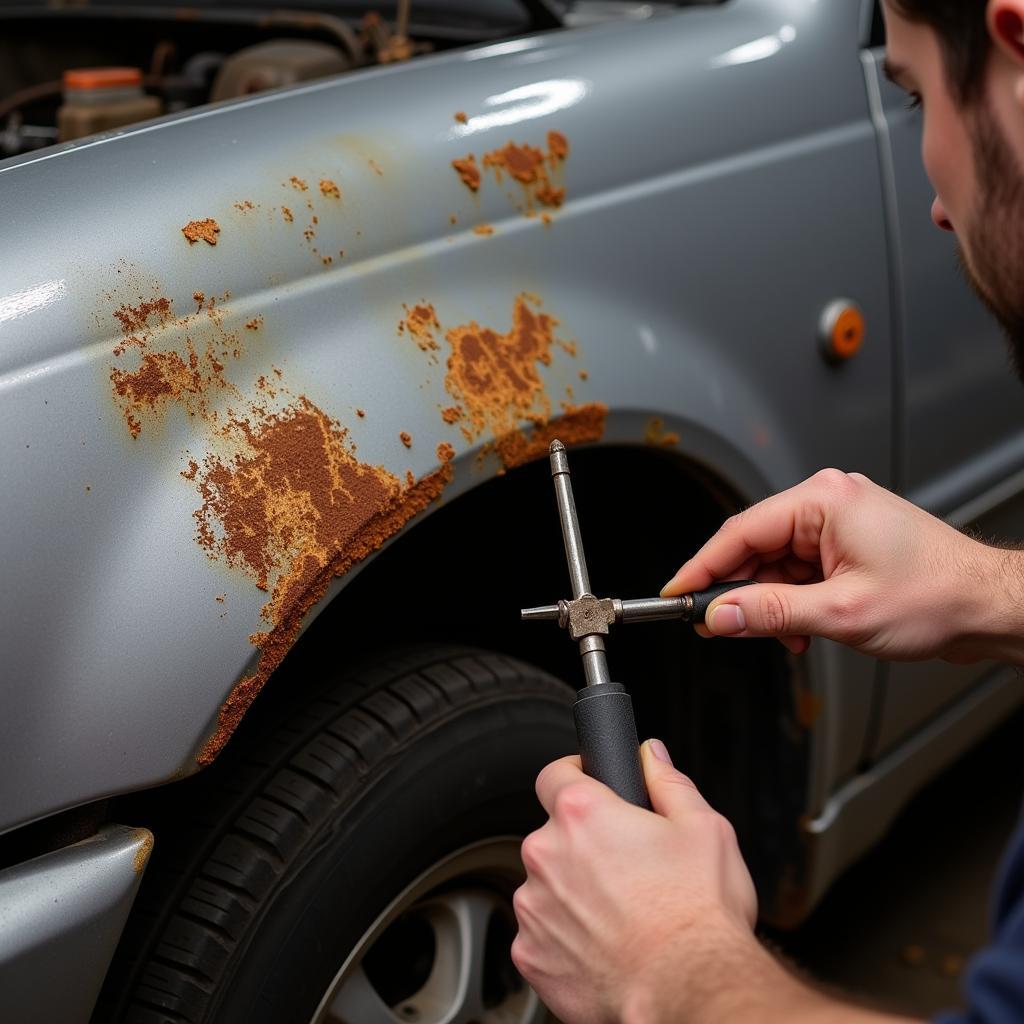Do you own a car and have a mechanical issue? Or perhaps you run a repair shop and need help diagnosing problems? You might be wondering if mechanical engineers can fix cars. The answer is a bit nuanced, and it depends on what you mean by “fix.”
While mechanical engineers are experts in understanding the principles of mechanics and have a strong foundation in design and analysis, they may not have the hands-on experience and specialized knowledge required to perform routine car maintenance or troubleshoot complex automotive issues.
However, mechanical engineers can certainly contribute to the automotive industry in numerous ways. Let’s explore the relationship between mechanical engineering and car repair in detail.
Mechanical Engineers’ Role in Automotive Industry
Mechanical engineers play a vital role in designing, developing, and manufacturing cars. Their expertise is crucial for:
- Vehicle Design: Engineers are responsible for designing the car’s structure, engine, suspension, and various other systems, ensuring optimal performance, safety, and efficiency.
- Engine Development: Mechanical engineers are involved in designing and optimizing internal combustion engines, electric motors, and fuel systems, focusing on improving fuel economy, power output, and emissions.
- Manufacturing Processes: They oversee the manufacturing process, ensuring the quality and efficiency of vehicle production.
- Testing and Analysis: Engineers conduct rigorous testing and analysis to ensure the reliability and performance of car components and systems.
Can Mechanical Engineers Fix Cars?
While mechanical engineers don’t typically work as auto mechanics, their expertise can be valuable in various car-related scenarios. For example:
- Troubleshooting Complex Issues: When faced with unusual or complex mechanical problems, a mechanical engineer can apply their analytical skills and knowledge of physics and engineering to understand the root cause of the issue.
- Developing Innovative Solutions: Engineers can use their creativity and problem-solving abilities to devise innovative solutions for automotive challenges, such as improving fuel efficiency or enhancing safety features.
- Designing and Implementing Modifications: Mechanical engineers can design and implement modifications to vehicles, enhancing performance, adding specialized features, or improving fuel economy.
“Mechanical engineers can analyze the underlying principles behind vehicle failures and develop innovative solutions for repairs. However, they may not possess the practical experience and specialized tools necessary to perform hands-on repairs.” – Dr. Emily Carter, Professor of Mechanical Engineering at Stanford University
What About Specialized Auto Mechanics?
While a mechanical engineer might not be the best option for a basic oil change or brake pad replacement, there are specialized auto mechanics who are highly trained in specific areas of car maintenance and repair. They can handle:
- Engine Overhaul: Fixing engine problems like valve issues, piston replacements, and head gasket repairs.
- Transmission Repair: Diagnosing and fixing issues related to the transmission, including gears, clutches, and fluid leaks.
- Electrical Systems: Repairing electrical issues like faulty wiring, malfunctioning sensors, and electrical component replacements.
- Suspension and Steering: Diagnosing and fixing problems related to suspension components, steering systems, and wheel alignment.
“Auto mechanics are trained to identify and repair common car issues. They are equipped with the specialized tools and equipment needed for hands-on repairs.” – John Miller, Certified Master Automotive Technician at Miller’s Automotive
Finding the Right Expert for Your Car
When your car needs repairs, it’s crucial to choose the right expert. Here’s a breakdown of how to determine who to call:
- Routine Maintenance: For basic services like oil changes, tire rotations, and brake inspections, a general mechanic at a local auto shop is often sufficient.
- Complex Issues: If you’re facing engine problems, transmission issues, or unusual electrical issues, seek out a specialized mechanic who specializes in those areas.
- Custom Modifications: If you’re looking to modify your car’s performance, add custom features, or implement specific changes, consider consulting with a mechanical engineer experienced in automotive design and engineering.
FAQ
Q: Can a mechanical engineer design a car from scratch?
A: Yes, mechanical engineers play a key role in designing and developing cars, from concept to production. They work in teams to create blueprints, prototypes, and final production models.
Q: Can a mechanical engineer help me with car modifications?
A: While a mechanical engineer may not perform the modifications themselves, they can provide valuable advice on design, materials, and implementation to ensure safe and effective modifications.
Q: What qualifications should I look for in a car mechanic?
A: Look for ASE (Automotive Service Excellence)-certified mechanics. They have met industry standards and are qualified to perform various repair services.
Q: What are the benefits of taking my car to a specialized mechanic?
A: Specialized mechanics have in-depth knowledge of specific systems and are equipped with the specialized tools and equipment needed for complex repairs. They often provide a higher level of expertise and can diagnose and repair problems more effectively.
If you are unsure about who to contact for your car repair needs, feel free to reach out to Autotippro for expert advice.
AutoTipPro
+1 (641) 206-8880
500 N St Mary’s St, San Antonio, TX 78205, United States
We are dedicated to helping you find the right solution for your car, whether it’s a simple oil change or a complex engine repair.





Leave a Reply